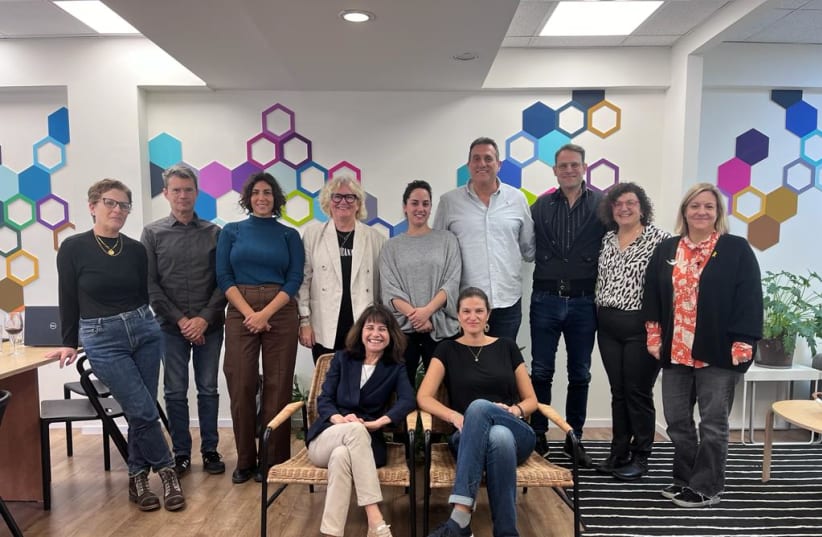
Water Lessons from Israel
September 29, 2010
PODCAST TRANSCRIPT:  A lot of fresh water goes to grow food. But as the population increases in the world so does the demand for that water. In the U.S., states like California and Arizona already face water shortages. In Israel, farmers are using short-term solutions until they can find long term answers. Sadie Babits reports farmers there are raising crops that don’t necessarily need the best water.
A lot of fresh water goes to grow food. But as the population increases in the world so does the demand for that water. In the U.S., states like California and Arizona already face water shortages. In Israel, farmers are using short-term solutions until they can find long term answers. Sadie Babits reports farmers there are raising crops that don’t necessarily need the best water.
There’s not much out here in the Negev desert except for the occasional sand storm and scrub brush. So if you want to grow something out in the desert, you need water. And that’s a hard thing to find in a country that doesn’t have much of it. Just ask Moses Zohar.
“When you have water you have life. If you have no water you have no life here.”
Zohar is a farmer in the Negev desert. He remembers the day he and his family stood on this barren land. Zohar says h is knees were shaking.
“He stood here and said there is nothing here how am I going to do this. He didn’t have any income… he had kids to feed and he’d just left his job and he had to start anew.”
Now ten years later Zohar has a small vineyard, an olive grove and dozens of pomegranate trees. He says the secret lies in huge underground aquifers. There’s a catch though. The w ater is too salty to drink, but it turns out pomegranates and olives don’t mind the brackish water. Shaher Nizre is a student at Ben Gurion University who helps farmers select and grow crops that can handle saline water.
“It depends on the tree itself because it has a system that can take salt out from the water. Not all of them can do this.”
Right now he explains scientists are testing different kinds of pomegranates on Zohar’s land.
“For example this tree will have very red fruits. This one will have soft seeds and what we try to do is try and see the best variety for Israel and the best variety for Europe.”
In other words, they’re trying to find pomegranates and olives that can be exported to European markets without using water people would normally use to drink. But even these crops can only be grown here for a while. Eventually the brackish water will put so much salt in the ground, nothing will grow.
Eilon Adar leads the Zuckerberg Institute for Water Research. It’s in the Negev desert.
“The population will increase so we should need more water for domestic use, for agriculture and for food production. It will indefinitely have to come from new non-conventional resources.”
One of those resources is saltwater seas. In the mid 1950s, when the country was designing a national water network to tap into the Sea of Galilee, scientists were also building the first desalination lab to take salty water and turn it into drinking water.
“So now that the Sea of Galilee is deprived from surplus of water we are ready with desalination. And what we are doing now is the same. We are happy with the results. We keep developing new technology for the next generation of producing new water.”
Adar says Israel must also learn to treat and desalinate sewage water that can be used to irrigate crops.
Water experts in the U.S. say we can learn from Israel and how that country deals with water scarcity. America’s era of using fresh water from underground aquifers and diverted rivers won’t last forever. Researchers say we need to learn to conserve water better and like the Israelis, plan for the day when the current supplies are sucked dry.
For The Environment Report, I’m Sadie Babits.



